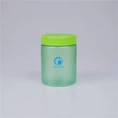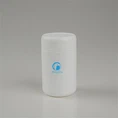The production of acrylic products typically involves several key steps:
1. Polymerization of Raw Materials
Acrylic begins with methyl methacrylate (MMA) monomers, which undergo free radical polymerization to form PMMA resin. This can be done through batch casting or continuous extrusion.
2. Sheet Forming Methods
Casting: Liquid MMA is poured into a glass mold and polymerized into solid sheets. This method offers high optical clarity and controllable thickness.
Extrusion: PMMA pellets are melted and extruded through a die to produce sheets, ideal for mass production of standard sizes.
3. Processing Methods
Cutting: Acrylic can be shaped with laser cutting or CNC machining for high-precision designs.
Thermoforming: Heated sheets can be bent into various shapes, commonly used for displays, guards, and covers.
Bonding: Special adhesives are used to assemble complex structures from multiple acrylic parts.
Surface Treatment: Techniques like polishing, screen printing, and UV coating enhance appearance and durability.
These processes allow acrylic products to achieve excellent visual appeal while supporting diverse structural and functional requirements. As a result, acrylic is widely used in advertising, exhibitions, home decor, and industrial applications.
















